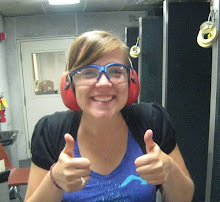As a student in the classroom of English 324, I found it very enjoyable and rewarding to explore being a teacher who explored story telling within a classroom. I appreciated the freedom we had to explore how we would want to communicate the importance of story telling to our students.
As a teacher within this unit, I realized why doing this unit that although I can easily think about why story telling is important and is applicable to every day lives, coming up with lessons that actually allow students to explore that can be difficult. Too often I think we as a society view story telling as something that is strictly playful and fictional. We ignore the fact that all of us are story tellers. In order to really show the true value of story telling, we have to move past fairy tales and fables and explore a little more into how story telling appears in situations applicable to real life. Now, don’t get me wrong, I myself find story telling of every nature to be valuable, but justifying it to meet standards can sometimes be difficult.
As a student participating in other story telling activities delivered by other groups as teachers, I was mostly surprised by how much variety the class as a whole presented. It felt a little strange because I found myself constantly evaluating whether or not their activities were aligned with their lesson and assessment. At times I almost felt like I could predict what the homework would be, knowing what the assignment in class had been. It is difficult to be a student when you have already experienced being the teacher of the same type of lesson.
I mentioned before a few things that I learned about myself along this progress. I would say that as a teacher, I am constantly worrying and rethinking my lessons in order to make them go as smoothly as possible and to assure they are aligned. I think it is also important to note that you should never completely throw out a lesson plan you have thought out ahead of time, however, you must realize it is okay to adapt along the way and most importantly, failure will happen. Failure should be seen as a learning opportunity to figure out what does and does not work. Teachers can then take that knowledge and apply it to making their lessons better. I also learned that coteaching can have its benefits and drawbacks. It is very easy to not let one teacher have a voice, and I think that happened a lot in our group.
As a student, I learned that I have become a more critical one when approached by any type of assignment or activity. I recognize the value in learning from a variety of different teachers with different styles. However, I also realize how I judge the value of lessons based on what I know about alignment, and it’s difficult to not want to just act and give the responses we desire as teachers. I feel like myself as a student is much different than a real high school student. Where I am more willing to respond and participate, a lesson could fail in that regard in a real high school context.
Whether or not story telling is a academically viable unit can be debatable. I feel that how you choose to make it relatable to your students is what is most important. Also, to think about. Also, presenting the idea of story telling and really showing the intellectual tasks it can get students to do such as to describe, explain, evaluate, examine, create, and summarize. It is very easy to forget to that story telling goes beyond fictional fairy tales and that it does get students to practice a variety of skills that can apply to daily life. It is the teacher’s job to ensure that story telling is portrayed and delivered to students in a way that gets them to do something beyond passive listening.
